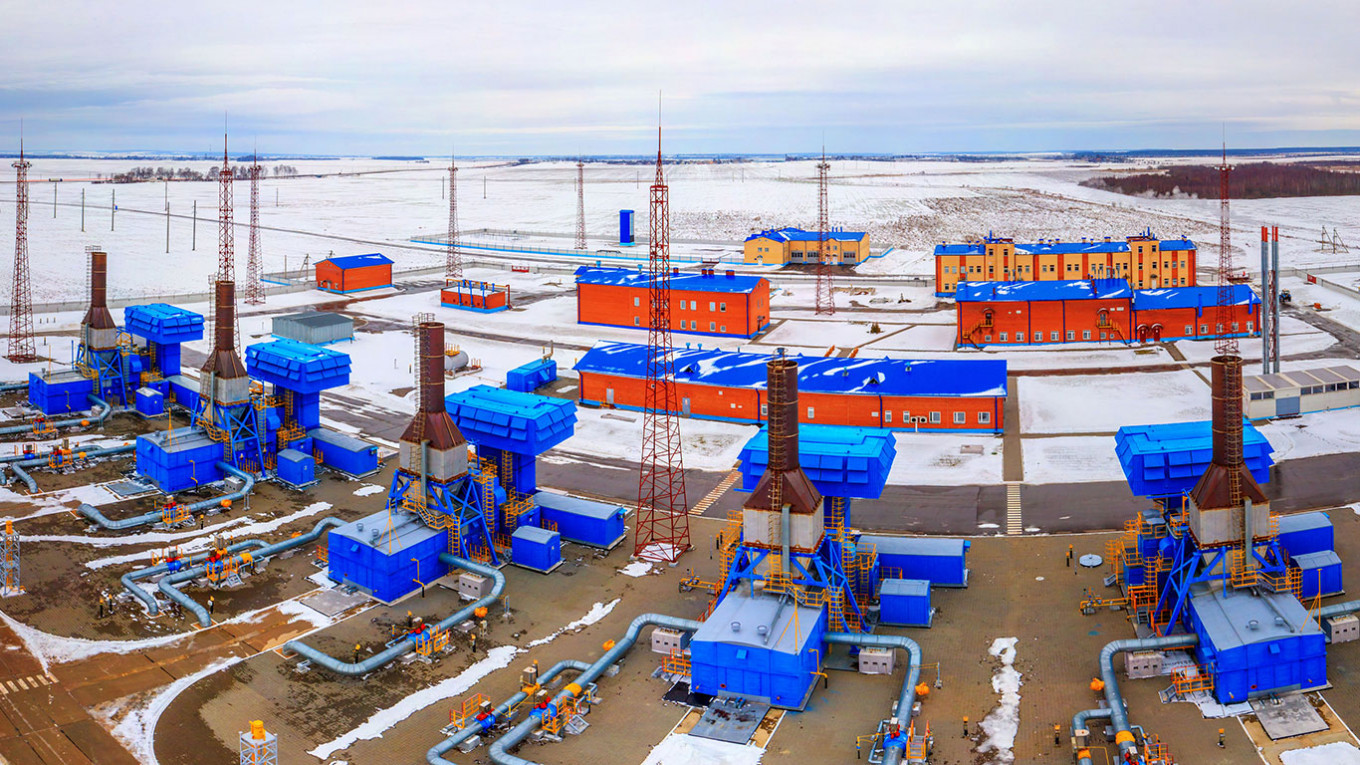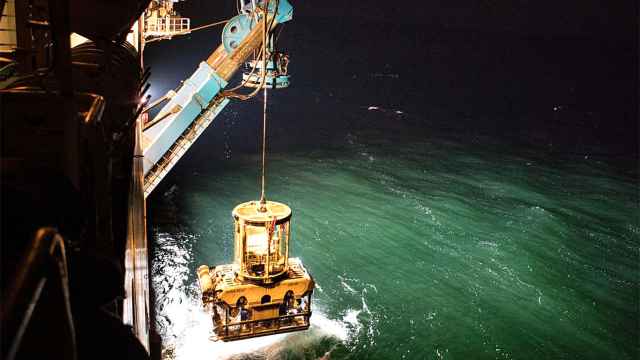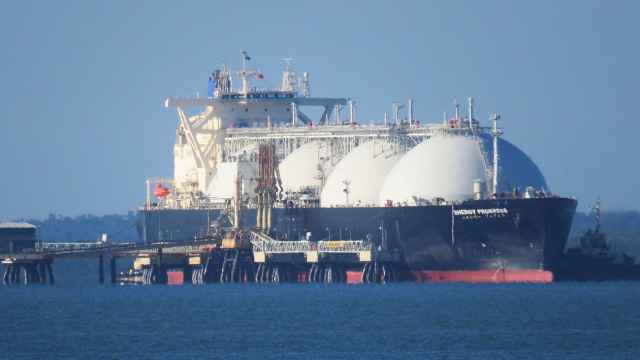Russian energy giant Gazprom has rejected accusations that Moscow is limiting gas deliveries to Europe and denounced Germany's resale of gas to Poland amid soaring prices.
Poland this week accused Moscow of having stopped its deliveries via the Yamal-Europe pipeline that sends Russian gas to Western Europe, accusing Gazprom of "manipulation".
The pipeline was operating in reverse mode this week, sending gas from Germany to Poland, public data showed, as European gas prices ticked up.
President Vladimir Putin on Friday denied that the flow direction was a political move and said that Poland had "sidelined" Russia in managing the pipeline.
"All accusations against Russia and Gazprom that we are not supplying enough gas to the European market are absolutely groundless and unacceptable and untrue," Gazprom spokesman Sergei Kupriyanov said late Saturday, calling the accusations "lies".
He said some buyers of Russian gas, in particular Germany and France, have not made additional orders, and slammed the reverse flow of gas that came as "winter is just beginning" as "not the most rational decision."
"I don't even want to talk about the price of such reverse supplies. These prices are significantly higher than the prices for contract volumes set by Gazprom, he said in an interview on state television.
"All problems in Western Europe have been created by themselves and there is no need to blame Gazprom for this. It is better to look in the mirror."
Western countries have for weeks accused Russia of limiting gas deliveries to put pressure on Europe amid tensions over the Ukraine conflict and to push through the controversial Nord Stream 2 pipeline set to ship Russian gas to Germany.
Germany's energy ministry, for its part, on Sunday poured cold water on accusations of Russia withholding deliveries.
"Long-term supply contracts, including the Russian ones, are being adhered to and the long-term quantities of gas are arriving in Germany," the ministry told AFP.
A Message from The Moscow Times:
Dear readers,
We are facing unprecedented challenges. Russia's Prosecutor General's Office has designated The Moscow Times as an "undesirable" organization, criminalizing our work and putting our staff at risk of prosecution. This follows our earlier unjust labeling as a "foreign agent."
These actions are direct attempts to silence independent journalism in Russia. The authorities claim our work "discredits the decisions of the Russian leadership." We see things differently: we strive to provide accurate, unbiased reporting on Russia.
We, the journalists of The Moscow Times, refuse to be silenced. But to continue our work, we need your help.
Your support, no matter how small, makes a world of difference. If you can, please support us monthly starting from just $2. It's quick to set up, and every contribution makes a significant impact.
By supporting The Moscow Times, you're defending open, independent journalism in the face of repression. Thank you for standing with us.
Remind me later.






